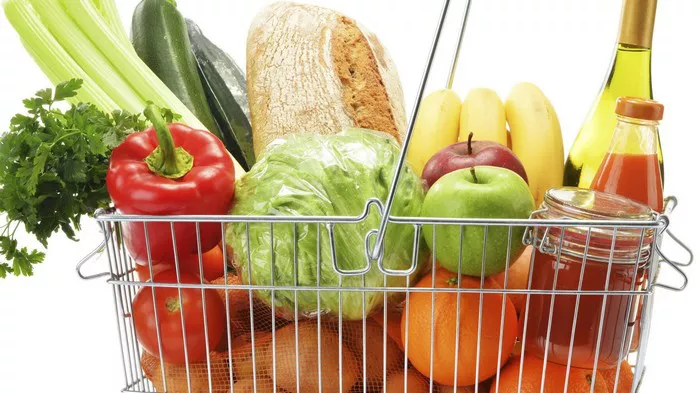Uric acid is a natural waste product that forms when the body breaks down purines, substances found in certain foods. While uric acid is typically filtered out by the kidneys and excreted in urine, high levels can lead to a condition known as hyperuricemia. This can result in the formation of urate crystals, leading to painful conditions such as gout. Managing uric acid levels through diet is an essential part of preventing flare-ups and maintaining overall health. In this article, we will explore the foods to include and avoid when you have uric acid.
Understanding Uric Acid and Hyperuricemia
Uric acid is produced during the breakdown of purines, which are naturally present in some foods and also produced by the body. When uric acid levels become elevated, a condition called hyperuricemia occurs. Hyperuricemia can lead to the formation of urate crystals in the joints, causing inflammation, pain, and swelling commonly associated with gout.
Including Uric Acid-Friendly Foods
Adopting a uric acid-friendly diet involves making informed choices about the types of foods you consume. By focusing on foods that help manage uric acid levels, you can reduce the risk of flare-ups and promote overall well-being. Here are some food groups and types of foods to include in your diet:
1. Low-Fat Dairy Products
Low-fat dairy products such as skim milk, low-fat yogurt, and low-fat cottage cheese have been associated with a lower risk of developing gout. They contain dairy proteins that may have uric acid-lowering effects. Incorporating these options into your diet can be a beneficial strategy.
2. Cherries
Cherries, especially tart cherries, have been shown to have anti-inflammatory properties and may help reduce uric acid levels. Some studies suggest that consuming cherries or cherry juice regularly may decrease the risk of gout attacks. Include fresh cherries or unsweetened cherry juice in your diet as a delicious and nutritious addition.
3. Berries
Berries, such as strawberries, blueberries, and raspberries, are rich in antioxidants and have anti-inflammatory properties. They can be beneficial for individuals with hyperuricemia. Enjoy a variety of berries as a snack, in smoothies, or as a topping for yogurt or oatmeal.
4. Vegetables
Many vegetables are naturally low in purines and can be included in a uric acid-friendly diet. Opt for a wide range of vegetables such as leafy greens, bell peppers, cucumbers, broccoli, and cauliflower. These nutrient-dense foods provide essential vitamins, minerals, and fiber, supporting overall health.
5. Whole Grains
Whole grains like brown rice, whole wheat bread, and oats are generally considered safe for individuals with hyperuricemia. They provide complex carbohydrates, fiber, and important nutrients without contributing to high uric acid levels. Choose whole grains as a healthier alternative to refined grains in your meals.
6. Plant-Based Proteins
Plant-based protein sources like legumes (beans, lentils, chickpeas), tofu, tempeh, and nuts can be beneficial for individuals with hyperuricemia. These protein options have lower purine content compared to animal proteins and can be included in a well-balanced diet.
7. Water
Staying hydrated by drinking an adequate amount of water throughout the day is essential for maintaining uric acid levels. Water helps dilute uric acid and promotes its excretion through urine. Aim to drink at least 8 glasses of water daily, and increase your intake if you are physically active or in hot weather.
Avoiding High-Purine Foods
When managing uric acid levels, it’s crucial to avoid or limit high-purine foods that can contribute to elevated levels of uric acid. Here are some food groups and types of foods to avoid or consume in moderation:
1. Organ Meats
Organ meats such as liver, kidney, and sweetbreads are high in purines and can significantly increase uric acid levels. It’s best to avoid these meats if you have hyperuricemia or limit their consumption to rare occasions.
2. Shellfish and Seafood
Shellfish, including shrimp, lobster, crab, and mussels, are rich in purines. Seafood like anchovies, sardines, and mackerel are also high in purines. These should be consumed in moderation or avoided, especially during gout flare-ups.
3. Red Meat
Red meat, including beef, lamb, and pork, contains higher levels of purines compared to other protein sources. Limit your intake of red meat and opt for leaner cuts when you do consume it.
4. Alcohol
Alcohol, especially beer and spirits, can increase uric acid production and impair its excretion. It is best to avoid or limit alcohol consumption, particularly during gout flare-ups. If you do drink, opt for moderate amounts of wine or clear spirits and stay well-hydrated.
5. Sugary Drinks and Fructose
High-fructose beverages such as soda and sweetened fruit juices have been associated with increased uric acid levels and a higher risk of gout. Limit your intake of these sugary drinks and opt for water, herbal tea, or unsweetened alternatives.
6. Added Sugars and Sweets
Foods high in added sugars, such as candies, cakes, cookies, and pastries, should be limited. High sugar intake can lead to weight gain, which can exacerbate uric acid levels. Choose healthier alternatives like fresh fruits or homemade desserts using natural sweeteners in moderation.
7. Limit Processed Foods
Processed foods, including packaged snacks, fast food, and convenience meals, often contain high levels of preservatives, additives, and sodium. These foods may contribute to inflammation and impact uric acid levels. Focus on whole, minimally processed foods instead.
Conclusion
Maintaining a uric acid-friendly diet involves including foods that help manage uric acid levels while avoiding or limiting high-purine foods that can trigger gout attacks. Incorporate low-fat dairy products, cherries, berries, vegetables, whole grains, plant-based proteins, and stay hydrated with water. At the same time, limit or avoid organ meats, shellfish, red meat, alcohol, sugary drinks, added sugars, and processed foods. Remember to listen to your body, work with a healthcare professional or registered dietitian, and tailor your diet to your specific needs and health conditions. By making informed choices and adopting a balanced approach, you can effectively manage uric acid levels and reduce the risk of gout flare-ups.


























